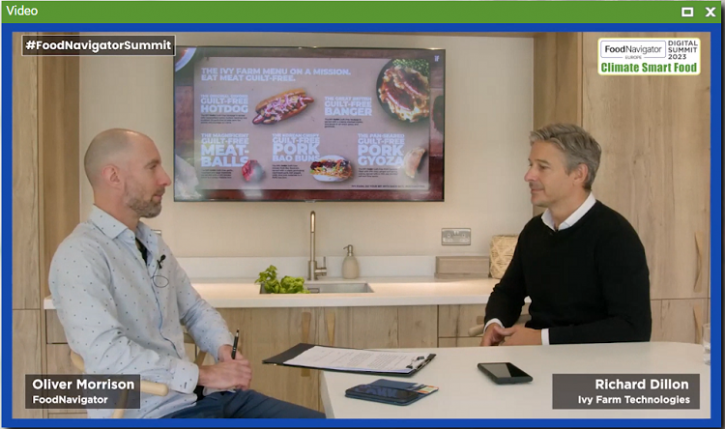FoodNavigator visited the start-up, a spin-out of Oxford College, as a part of its Local weather Good Meals digital summit.
Ivy Farm CEO Richard Dillon revealed the corporate submitted a file to the FSA earlier this yr for its plans to produce cultivated meat to meals firms and eating places within the UK.
However laws urgently must be overhauled within the UK to permit this trade to flourish, he added. The corporate is due to this fact additionally working with regulators in different jurisdictions.
“Nations like Singapore and the US, the place cultivated meat has already been authorized, are benefitting from a clearer, extra agile and versatile regulatory pathway which helps their home cultivated meat industries,” he stated. “Fairly merely, firms in these international locations will appeal to extra funding from traders as there.”
“We want our pilot plant authorized within the US in 2024, and if I might wave a magic wand, we’d hope that the UK is as quick or as shut behind,” he added. “If not, it simply forces our hand for the second a part of scale up. If the UK are dragging their ft on regulation at that time and we won’t get it over the road, we’re ready to construct our first manufacturing plant abroad. We have completed the design and costings with a US-based accomplice.”
In the meantime, Dillon insisted cultivated meat presents a extra environmentally manner of satisfying the world’s urge for food for meat.
“Cultivated meat can provide the vast majority of shoppers the style and vitamin they love, but with out the adverse influence to the surroundings related to industrial farming. From producing it anyplace on this planet, to utilizing land and assets extra sustainably.”

Revealing how the product is made, he defined: “Cultivated meat is actual meat, solely it’s made otherwise. The method entails one of the crucial pure processes on the planet – cell replication. The truth is, the method is much like the way in which by which fashionable cultured or fermented drinks and meals, similar to beer or kefir, are made.
“We begin by taking a cell pattern from a farm raised animal, a really small quantity, about 1cm in dimension. Our distinctive know-how permits us to determine the 0.001% of cells that may develop effectively exterior the animal, and we practice these cells to develop in giant fermenters. We feed these cells the proper mix of vitamins that they should develop, similar to starch, lipids, nutritional vitamins, amino acids. Then, in simply 2 weeks, we now have scrumptious and nutritious meat to reap. We develop pure muscle and pure fats cells and mix them collectively into mince, that makes tasty burgers, meatballs and gyozas.”
The environmental proof?
Peer-reviewed analysis exhibits cultivated meat might lower trigger as much as 92% much less greenhouse gasoline emissions and as much as 94% much less air air pollution, and use as much as 66% much less water and 90% much less land than standard beef. It can be made with out antibiotics, serving to to cut back the danger of antimicrobial resistance.
A current pre-print research out of the College of California, Davis, nevertheless, has claimed lab-grown meat is just not inherently higher for the surroundings due to extremely energy-intensive manufacturing processes.
“The premise of this research was based mostly on utilizing present provide chains to feed the cells. That is the pharmaceutical provide chain the place vitamins are purified to a really excessive stage – it’s that purification step which prices numerous power.
The reality is we are able to’t use that provide chain, it’s too costly. We’re utilizing meals grade and feed grade vitamins that don’t want that purification course of.”
Alternatives opened by cultivated meat’s rising ecosystem
Discovering these food-grade vitamins, in the meantime, opens alternatives for the meals sector to produce substances to cultivated meat firms, he revealed.
“We’re working to map out cultivated meat as a part of a much bigger eco-system the place we are able to take issues brewer’s spent grain to supply among the costlier components that goes into our media. A well-designed eco-system might principally make it like an upcycling proposition, and really compelling from a sustainability viewpoint.”

